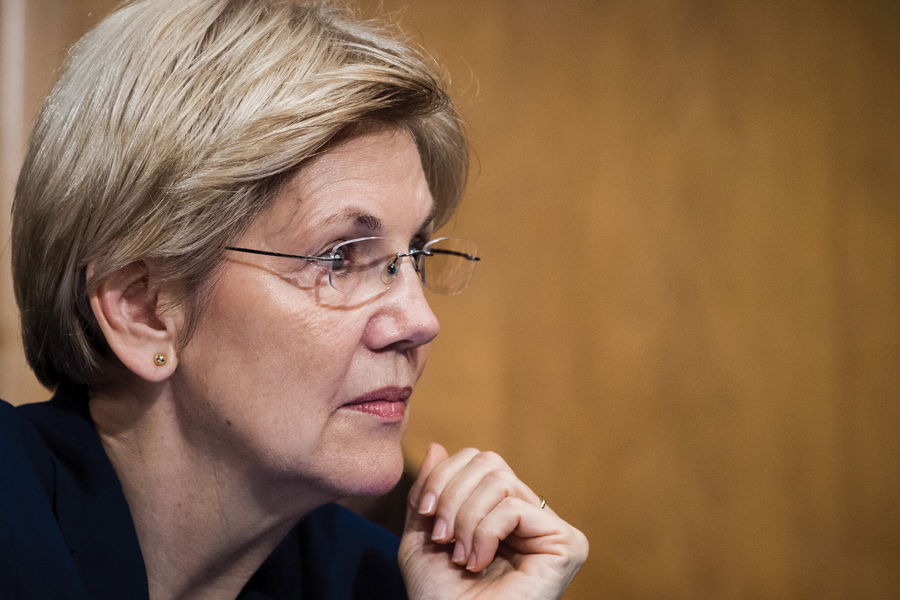Elizabeth Warren unveiled a policy proposal Thursday to slap new rules on private equity and "useless speculation" on Wall Street while rolling back President Donald J. Trump's deregulation of the financial industry.
A centerpiece of her "economic patriotism" plan is to transform private-equity firms, which she said often act like "vampires" when they buy companies by "bleeding the company dry and walking away enriched even as the company succumbs."
The new plan from the former Harvard law professor highlights her unique populist pitch for the Democratic presidential nomination — a promise to meld her understanding of Wall Street and federal regulatory powers to enact new regulations that she argues will force financial firms to better serve consumers and the middle class.
"Wall Street is looting the economy and Washington is helping them do it," Ms. Warren wrote on medium.com. "I am tired of big financial firms looting the economy to pad their own pockets while the rest of the economy suffers. I am done with Washington ignoring the evidence and acting as though boosting Wall Street helps our families."
If she were the nominee, the 2020 election would pit one of Wall Street's most outspoken nemeses against a president who cut corporate taxes and deregulated banks in an effort to boost economic growth. Unlike Mr. Trump, who blames bad trade deals and permissive immigration for American middle-class problems, Ms. Warren lays culpability at the feet of concentrated corporate power.
Ms. Warren's plan would make private-equity firms responsible for the debts and retirement pension obligations of companies they purchase, while making their profits contingent on the success of the entities they control.
She said she'd restrict firms' ability to pay themselves "monitoring fees" and dividends, while limiting their ability to use tax breaks for the debt placed on companies they buy. And she said she'd arm pension funds and other investors with better information about private equity investments.
The Massachusetts senator unveiled legislation toward that end on Thursday, called the "Stop Wall Street Looting Act." It had numerous Democratic cosponsors, including 2020 rival Kirsten Gillibrand of New York and House Democrats Ayanna Pressley of Massachusetts and and Rashida Tlaib of Michigan.
In her campaign plan, Ms. Warren said
she'd close the "carried interest" break that provides preferential tax treatment to investment fund managers. Mr. Trump campaigned on ending that loophole in 2016 but his tax law largely preserved it.
She added that she'd push to enact a 21st century Glass-Steagall Act to discourage "excessive risk-taking and speculation" and seek to make bonuses for bank executives contingent on successful investments.
Ms. Warren said she would also "reverse the Trump-era weakening of rules on capital, liquidity, leverage, and resolution-planning for big banks" via regulatory actions that don't require the approval of Congress. She called for passing her postal banking plan and Accountable Capitalism Act aimed at discouraging trading for short-term gain.
Ms. Warren consistently places in the top four in a crowded Democratic field, having enjoyed a boost in surveys after the first presidential primary debate three weeks ago. Her anti-corporate message carries similarities to that of
Bernie Sanders, who waged an unexpectedly strong bid against eventual nominee Hillary Clinton in 2016.
While Mr. Sanders brings a disciplined message on the campaign trail to upend the economic system, Ms. Warren has sought to differentiate herself with a steady stream of detailed policy blueprints on matters ranging from
taxing wealth and corporate profits to providing universal child care and
canceling most student debt.
The latest plan follows an earlier "economic patriotism" proposal she released one month ago.
(More: Capital gains increase at heart of Democrats' tax-the-rich plans)







